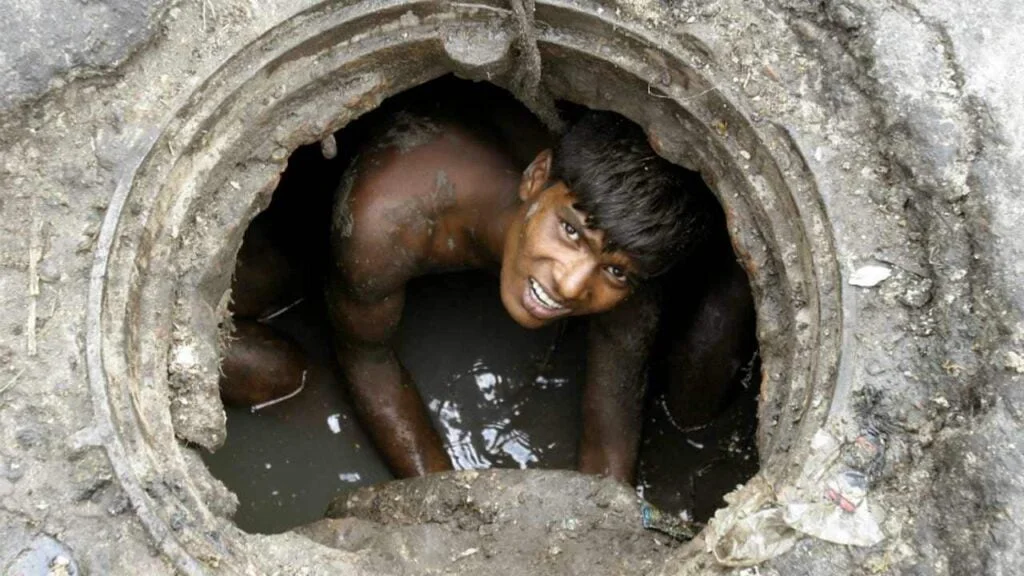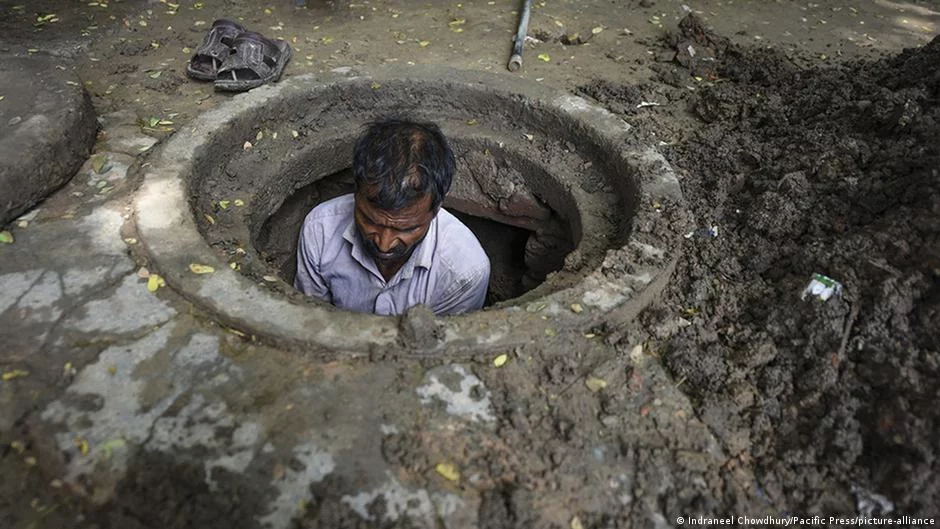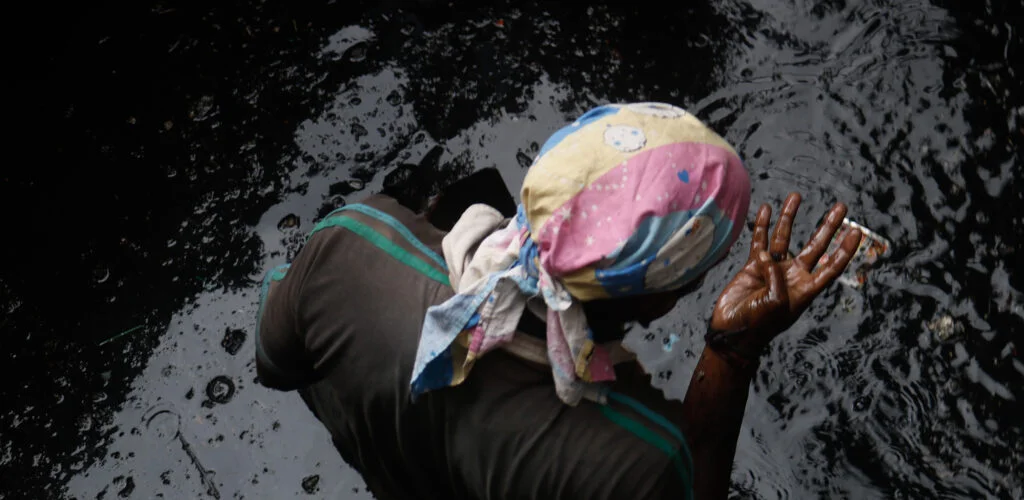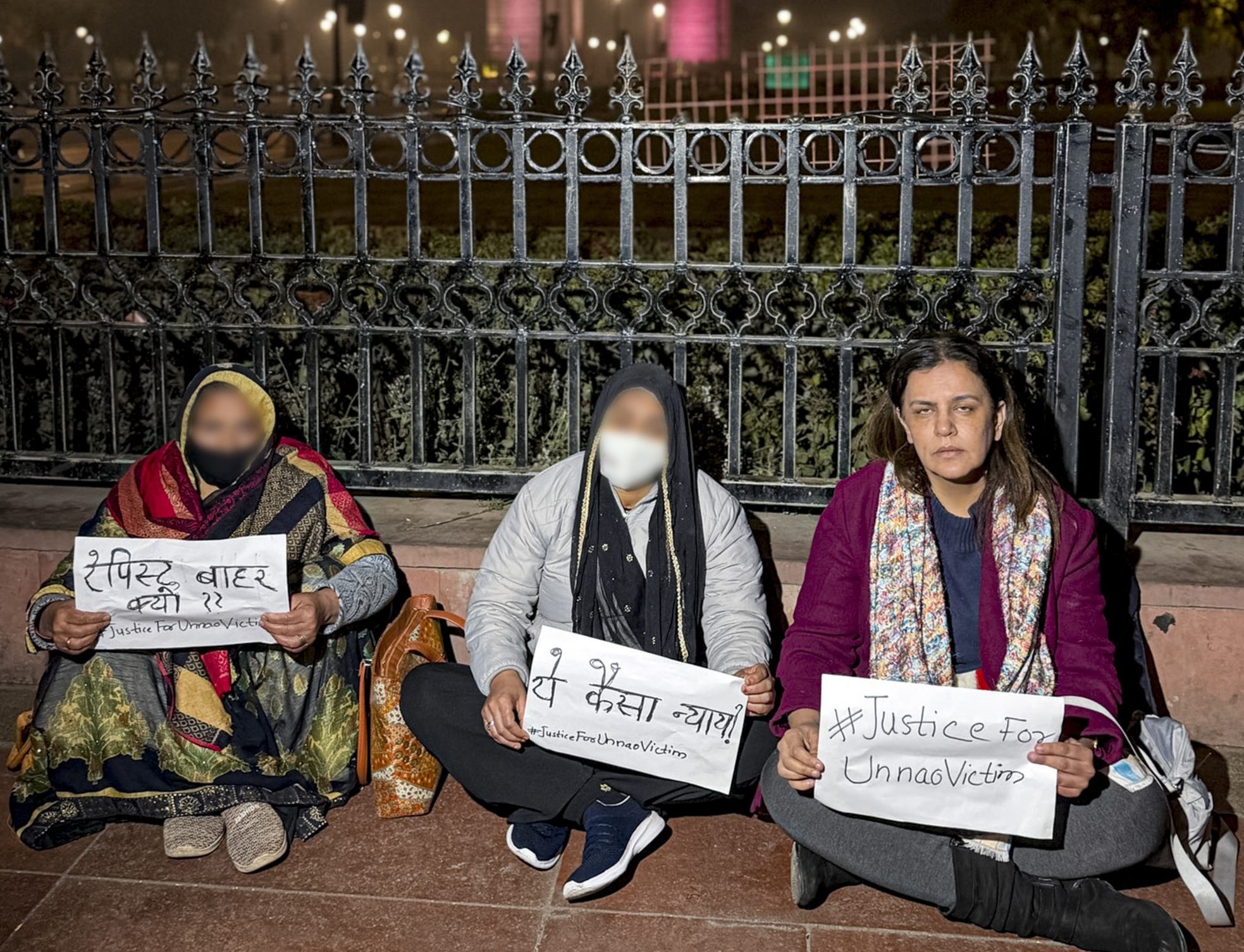In a verdict that will likely affect many communities across India, the Supreme Court of India on January 30 issued stringent orders to ban manual scavenging and manual sewer cleaning in six big cities namely Delhi, Mumbai, Kolkata, Chennai, Bangalore and Hyderabad. The latest order came as a strong response to a petition issued by Mr. Balram Singh to completely exterminate manual scavenging in India. The top court judges Sudhanshu Dhulia and Aravind Kumar. in their verdict announcing the ban said, ‘Either do it or face the consequences.‘
In a verdict that will likely affect many communities across India, the Supreme Court of India on January 30 issued stringent orders to ban manual scavenging and manual sewer cleaning in six big cities namely Delhi, Mumbai, Kolkata, Chennai, Bangalore and Hyderabad.
This is not the first order by the Supreme Court on manual scavenging. In literal terms, manual scavenging means picking up waste from sewers and infected tanks by hand. The practice has been illegal in India since 1993. After 20 prolonged years, Indian lawmakers finally introduced the legal prohibition of the practice. It introduced the Prohibition of Employment as Manual Scavengers and their Rehabilitation (PEMSR) Act in 2013 making manual scavenging a punishable offence.
The 2013 Act prohibits a human to cleanse, carry or discard human excreta manually. However, it continues to take place in different parts of Indian states as many labour workers across Indian subcontinent are forced to choose it as an occupation citing inadequate employment jobs and discriminatory caste rules. These labourers are recruited by the municipal or law organisations and even private middlemen to clean sewage/drainage systems that are full of dirty mud and rotten plastic releasing toxic gases that can poison respiratory systems. Many states in India have reported deaths citing manual scavenging.
Earlier in December 2023, the top court had ordered the Narendra Modi-led central government to conduce with several Indian states in order to collect data to stamp out manual scavenging and sewer cleaning in India. As a response to the order, the Centre recently submitted an affidavit claiming, among 775 Indian districts, 456 reported zero incidents of manual scavenging. However, the latest prohibition by the SC comes as an angry reaction to reported deaths of several migrant workers/labourers in Delhi citing manual sewage cleaning.
Despite strong enactments and orders, several labourers – including reported and unreported statistics – from migrant worker communities, have lost their lives due to unlawful manual scavenging. There is enough data to prove it. The following data documents reported deaths due to illgal manual scavenging in mainly Indian metropolitan cities that recently received Supreme Court’s prohibition orders.
Manual scavenging death toll: city-wise meticulous statistics
Delhi: The rampant practice of manual scavenging in the national capital of India, Delhi, has failed to abide by the enforcement induced by many courts – top or low. Babundra Kumar Singh, a 29-year-old labourer from Bihar along with his co-worker Ramasre from Himachal Pradesh, died due to inhaling too much infected fumes in Delhi’s southwest area, Pillanji, while removing sewage from gutter in October 2024. In a similar tragedy, two young men lost their lives in May 2024 as they fell completely unconscious inside a septic tank in Delhi’s Jasola area.
According to the Hindustan Times, a person recruited the two deceased men to clean a septic tank at his residence and allegedly persuaded them to do manual scavenging after the desludging vehicle failed to function properly.
According to the Hindustan Times, a person recruited the two deceased men to clean a septic tank at his residence and allegedly persuaded them to do manual scavenging after the desludging vehicle failed to function properly. The duo died due to excessive consumption of poisonous gasses released inside the malfunctioned tank. Overall, the national capital has reported seven manual scavenging deaths in 2022, followed by two in 2021, three in 2020 and two in 2019.
Mumbai: Two young brothers and their middle-aged father succumbed to death in March last year in Mumbai’s Ambujwadi region – a densely populated region dominated by urban slum settlers – after becoming unconscious in a high 15-feet deep septic tank of a public toilet. The cause of their death was gasping toxic fumes while scouring the toilet. The deceased were found by the neighbours veiled in wet mud, steaming blood down their nose and mouth.
While these deaths caused by manual scavenging in the city were reported and managed to garner attention of the mainstream media, Mumbai remains a city of “cloaking” as many deaths have failed to make headlines citing lack of accountability by Brihanmumbai Municipal Corporation (BMC). However, a detailed report on manual scavenging by The Scroll stated that between 2017 to 2022, the city of glamour reported 19 deaths. Statistically six deaths were reported in 2017, followed by four in 2018, six in 2019 and three in 2022.
Kolkata: Three construction workers died due to inhilation of toxic gas last week at the Kolkata Leather Complex in Bantala area of the city while repairing an underground sewer pipeline that was 10-feet deep. The repair work was in relation to the units at the city leather complex. They reportedly succumbed due to excessive wastage induced by the tanneries that consisted of multiple chemicals found floating in the common drainage pipeline. The labourers identified as Farzem Sheikh (58), Suman Sardar (30) and Hasibur Sheikh (30) – all from Murshidabad – were reportedly without protective gear.
While the West Bengal government has “offered” an ex-gratia of Rs. 10 lakh for the family members of the deceased persons, the tragic incident only depicts clear violation of the top court’s order and apathy of the whole system.
The unfortunate deaths came as an appalling shock right after the Supreme Court ordered its new verdict on prohibiton of manual scavenging and sewage cleaning in India. While the West Bengal government has “offered” an ex-gratia of Rs. 10 lakh for the family members of the deceased persons, the tragic incident only depicts clear violation of the top court’s order and apathy of the whole system.
Bangalore: Two men identified as “sewage workers” – Dilip Kumar and Ravi Kumar – died while cleaning a sewage treatment plant (STP) in south Bangalore’s Kanakapura area in 2023. The tragic incident was reported at Prestige Falcon City Apartment in Kanakapura. The “city of technology” that continues to blossom on “tech-driven” lifestyle actually holds the darkest secrets when it comes to manual scavenging as a malpractice.
According to a report by the Citizen Matters, the Bengaluru Urban region recorded sky-scraping numbers with 42 deaths due to manual scavenging over the last five years. The soaring number of deaths is primarlily caused by cleaning of STPs that are mostly located in the city apartments, lacking designed maintenance. Another report by the same organisation claimed that the city has also the highest number of manual sewers/scavengers with challenging data on their identification.
Another report by the same organisation claimed that the city has also the highest number of manual sewers/scavengers with challenging data on their identification.
Chennai: Gopinath Arunthathipuram, a Dalit youth, succumbed to death in Chennai’s Avadi region due to asphyxiation – a condition of being deprived of oxygen that can lead to unconsciousness or immediate death – while fixing drainage block in an underground sewer in August last year.
The deceased was officially working for the Avadi City Municipal Corporation as a contract employer. In a similar “hazardous cleaning” incident, two men in their late thirties died of the same, deprivation of oxygen in the body, as they wiffed the poisonous gas coming out of the septic tank while cleaning it in Perungudi region of Chennai in July 2022. The duo were reportedly cleaning a tank that was nearly 20-feet deep.
Right to live and right to respectful occupation is for all
Manual scavenging persists as a malpractice in India. Sometimes as the only “option” to sustain a livelihood. Sometimes as a pathetic caste system-induced “occupation”. In all these cases, it deprives members of mainly Scheduled Caste (SC), Scheduled Tribe (ST), or Other Backward Class (OBC) community members their right to live, right to respectful and safe employment. A report by the News Minute has ascertained that 77 percent of manual scavengers in India are Dalit, however, the central government has contradicting “beliefs”.
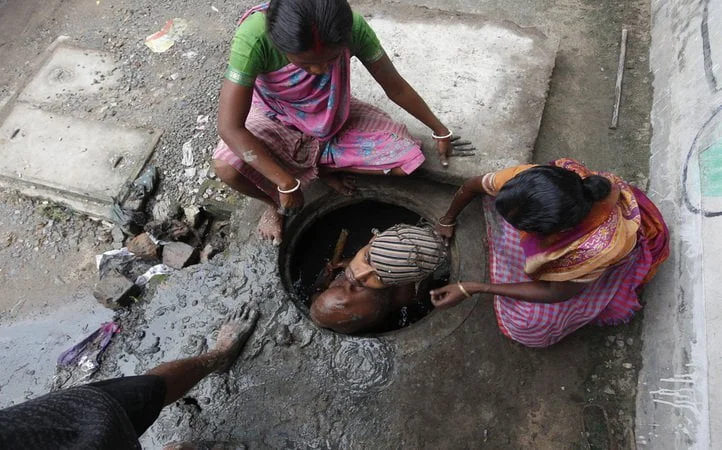
As we dig deeper examining multiple reported manual scavenging deaths in India’s cosmopolitan cities, it is important to remember those who lost their valuable lives while forcibly doing hazardous cleaning. It is also important to reflect upon and scrutinise this deep-rooted ugly caste system that clearly wins over even the Supreme court’s orders.
